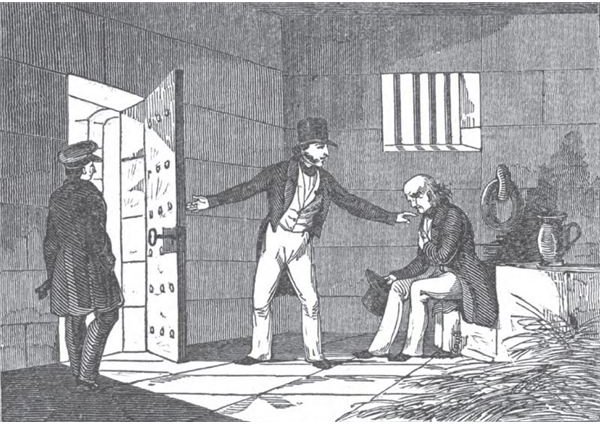Are You a Small Business Owner? Find Out How the 999 Tax Plan Might Impact Your Business
A key plank of Herman Cain’s campaign platform is his proposed 999 Tax Plan, which would replace the American tax system with a flat nine percent tax rate and act as a transition bridge to the eventual implementation of the Fair Tax. While there has been a lot of talk and press coverage on how the tax would affect individuals, many business owners may have unanswered questions on how the tax would affect them on a corporate level.
In a recent email interview, Deborah Sweeney, CEO of MyCorporation.com, discussed with us the 999 Plan. Sweeney has helped over a quarter of a million businesses with their governmental filing, and she has great insights from a law perspective on small business. Here we present her take on how small businesses will be affected if the 999 Tax Plan becomes the law of the land and replaces the current tax system.
What the Expert Says
Bright Hub: In your own words, how would you describe the 999 Tax Plan?
Deborah Sweeney: The 999 Tax Plan is the name given to Herman Cain’s economic plan that he has been heavily marketing during his

presidential campaign. The idea behind it is simple–9% tax on income, 9% on national sales and 9% on corporations.
Everything is taxed at the same rate, completely revolutionizing the tax code and simplifying tax season for everybody. Naturally, many conservative pundits love the idea of a flat tax, so this has a bit of support behind it.
However, if you notice, consumers are essentially double-taxed while the producers are taxed only once. So the average person pays 9% on their income, followed by 9% of everything new they buy (the rate is not applicable on used items) while corporations only pay a 9% corporate tax. The idea is to shift the burden from producers to consumers, which has serious implications as, while the upper classes may see their total tax burden go down, the middle and lower classes will have their burden grow.
Bright Hub: You have stated that in your opinion, there are at least five ways that the 999 plan will affect small businesses. Like most factors that affect the operation and profitability of a company, these have the potential to be either positive or negative. Would you elaborate on that, please?
DS: The first negative: An across-the-board 9% sales tax hurts consumption. Not only will American workers have to pay 9% of their income to the government, but also they will now be required to pay an extra 9% on anything they buy. While a certain amount of consumption will always be necessary, most consumers will greatly curtail their spending.
To make matters worse, the majority of consumers come from the middle and lower classes, both of which will be more heavily impacted by this tax increase. All of this negatively affects businesses from all sectors, from production to retail, as, without demand, there is no reason to produce and no financial support. Even with a decrease in the corporate tax rate, if there is no one to buy the goods then many businesses will fail.
The first positive: While people may not spend money on consumable goods, they will begin to save more. That increases national savings, which in turn, increases national investment. Combine that with the flat 9% tax on corporate earnings and incorporated businesses can end up seeing quite a bit of growth, as more money is available, both from their own revenues and in the forms of loans, to invest in their company. Because Cain has stated he would not eliminate business deductions for investment in capital, this would really help capital-based corporations like those in the manufacturing industry, a sector hit hard by cheaper labor and capital overseas.
The second negative: Industries in the service sector that are more labor oriented would be negatively impacted; not only will the national sales tax hurt the demand for their services, but labor deductions will be erased, meaning hiring the necessary amount of workers may be difficult and will add to the unemployment rate. Cain is separating capitol and labor in the hopes of getting more out of every worker, but it does not make sense to favor one vital section over the other.
The second positive: This plan eliminates the payroll tax burden on small businesses. The average business owner will not have to worry about sending the government the necessary amount of money out of each worker’s paycheck. While this may seem small, withholding payroll taxes and filling out all the necessary paperwork for them can be quite burdensome and either takes a bit of time or requires hiring an accountant. Eliminating this burden makes life easier for small business owners.
The third negative: Finally, as tax burden increases the incentive to cheat does as well. We can pretend that all retailers will comply with this new tax and always collect an extra 9% on every dollar spent on their store, and many certainly will, but such a heavy tax increase will cause many retailers to try to sell products under the table. Therefore, if one retailer is selling their goods for 9% less than another and all you have to do is pay cash to eliminate a money trail, then the cheating business will be rewarded. That puts all businesses into a precarious position with the law and, unless Cain’s government is willing to invest heavily in infrastructure and officers to enforce compliance, the pressure to cheat will continue to build.
BH: So, what is the bottom line here in your opinion? How will the 999 Tax Plan affect small business over the long term?
DS: In conclusion, while we should be aiming for a clearer, fairer tax plan, Cain’s ideas probably are not what we should be looking to implement. A shift of the tax burden from the producer to the consumer makes a bit of sense, but the poorer classes will assume more of that burden and, unless Cain wants to abandon the simplicity of his 999 plan for another convoluted tax scheme, that won’t sit well with most people.
Is The Tax System Overdue for Reform?
Whether you agree or disagree with Sweeney’s analysis of the pros and cons of the 999 tax on small businesses, you are probably in the majority of individuals who agree that the tax system is long overdue for a reform or replacement. The economy is limping along on life support, unemployment is at record highs, and the American Dream seems like a faded memory of former days of prosperity. Tax reform is the fastest way to spur economic mobility and growth and put America back on the map as the world’s best place to live, work and run a business.
We hope this expert interview has provided you with some food for thought, and we are anxious to hear your reactions and opinions. Please use the comments sections to share your feedback.
Read More About It Right Here on Bright Hub
Fair Tax, Flat Tax, or 999 Tax? Plain Talk Explanations for Your Confusion, by Donna Cosmato
Different Types of Small Business Taxes, by W.A. Swan
Living the American Dream: Entrepreneurism in America, by Arun Kumar, MVP
References
-
Image: Sketch of Richard Mentor Johnson freeing a man from debtors’ prison. Johnson was an advocate of ending the practice of debt imprisonment throughout his political career by unknown artist under public domain
Image of Herman Cain by Gage Skidmore
(Both images from Wikimedia Commons)
-
Email interview, October 15, 2011, Deborah Sweeney, CEO, MyCorporation.com
